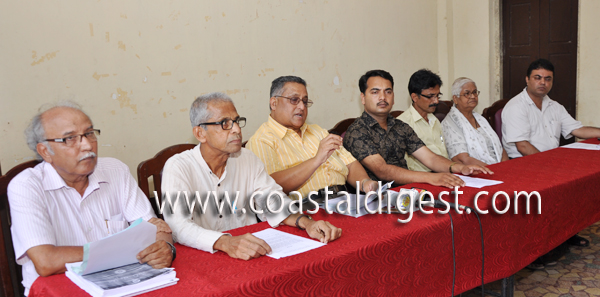Addressing media persons at a press conference here on Friday, president of the Committee Suresh Bhat Bakrabail, said that after the 'saffronisation' of social, cultural and administrative sectors the BJP government has been continuing its undemocratic drive through the saffronisation of education sector.
As per the NCF 2005 guidelines, published by NCERT, the textbooks should strive to strengthen democracy, and the pluralism which was the main feature of Indian culture. However the new textbooks attack the values of democracy and pluralism due to the apparent 'saffronisation' drive by the ruling saffron party of the state, said Mr Bakrabail.
He also said that apart from the saffronisation of text books of Class V and VIII, the Committee also has received information that the 'saffronised' textbooks of Class VI, VII, IX and X for the next academic year, have already been finalised and would go for printing soon.
“Such a development will affect the tender minds of school-going children, which will have far-reaching consequences,” he said.
It is the need of the hour to question such a communal move that could result in formation of a communal and intolerant society, he said.
Citing example of a Class VIII Hindi textbook in Bangalore division, he said that the text in the original song 'Punyakoti' had been twisted at the end. In the new version of the song the tiger takes an oath to refrain from beef eating.
Walter Maben, a member of the Committee said that a state-level seminar would be organised on Sunday as part of their programmes to create awareness among people about the saffronisation of the textbooks.
![]()







Comments
Add new comment